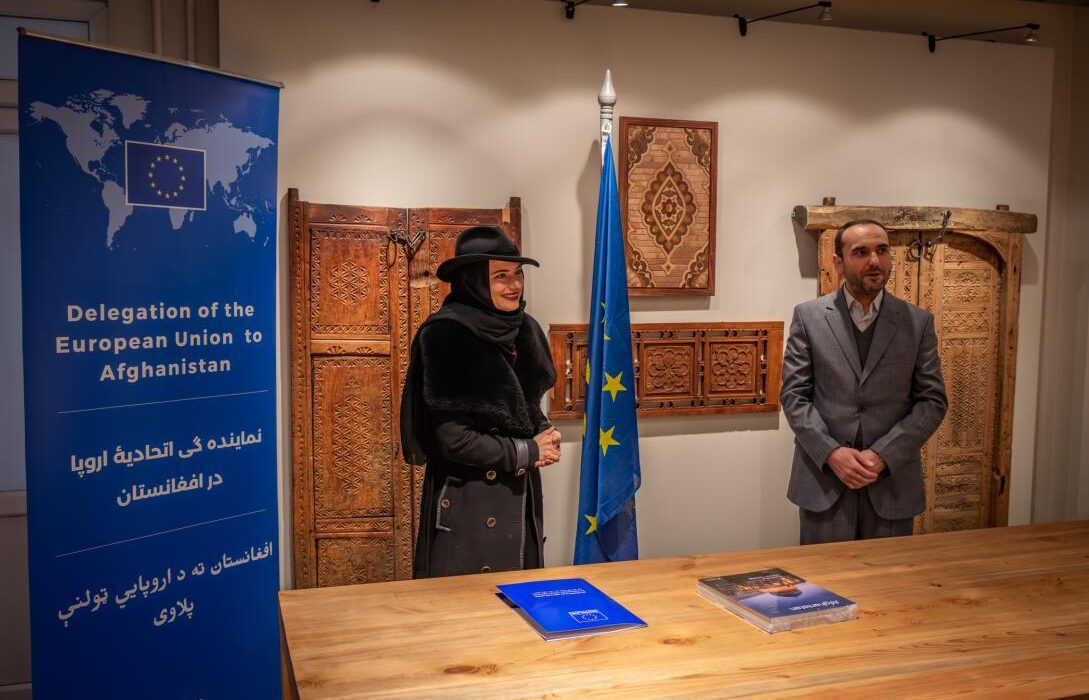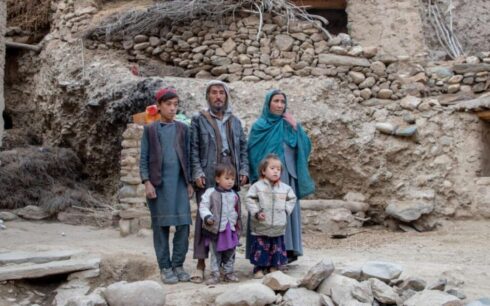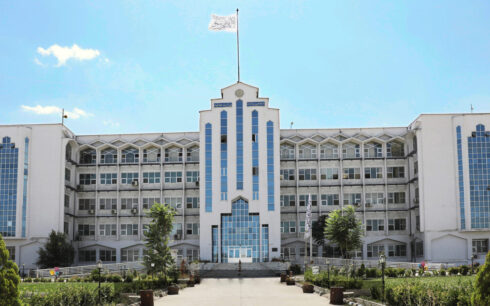KABUL, Afghanistan — The European Union on Monday said it has launched a €22 million initiative to promote inclusive and sustainable economic growth in Afghanistan, with €19.8 million allocated to the Aga Khan Foundation (AKF) and Aga Khan Cultural Services.
The program aims to address the immediate needs of Afghan communities while fostering long-term economic stability, inclusion, and resilience, according to the EU Delegation to Afghanistan.
“Millions in Afghanistan remain trapped in poverty, with women disproportionately bearing the burden,” said Veronika Boskovic Pohar, EU Chargée d’Affaires a.i. in Afghanistan. “This initiative supports inclusive and sustainable economic growth, helping communities build self-reliance. By enhancing employment, income generation, and productivity, it promotes resilient livelihoods, particularly for women and other vulnerable groups, including youth, returnees, internally displaced people, and farmers affected by the poppy ban.”
Ms. Boskovic Pohar also noted the program’s emphasis on addressing climate challenges. “The program considers the severe impact of climate change by introducing climate-smart technologies and helping communities withstand climate-induced shocks. Additionally, the EU recognizes the importance of access to finance and continues to support it through Community-Based Savings Groups under this initiative,” she said.
Focus on women and youth
The initiative, titled “Economic Resilience, Women’s Economic Empowerment, and Job Creation in Afghanistan,” will run for 36 months, directly benefiting 34,200 households and reaching an estimated 292,544 people indirectly. It places a strong emphasis on empowering women and youth through tailored vocational and professional training, business development support, and digital skills programs.
Women’s economic empowerment is central to the project, which is expected to directly benefit 26,793 women and indirectly support 146,272 more. Key activities include women-led dairy initiatives and specialized training to enhance women’s participation in the economy.
The project also targets cultural and heritage sectors, offering livelihood opportunities while preserving Afghanistan’s rich cultural history. Skills development programs will focus on reviving cultural and historic sites, particularly for youth and adolescents.
The program incorporates innovative solutions to address environmental challenges, such as solar-powered irrigation systems to mitigate water shortages and enhance agricultural productivity. The initiative also aims to strengthen food security by supporting 920 farms and establishing 300 greenhouses.
Dr. Najmudin Najm, Chief Executive Officer of AKF and Afghanistan Coordinator for the Aga Khan Development Network (AKDN), highlighted the collaborative effort: “This project strengthens the longstanding partnership between the EU and AKDN in Afghanistan. Together, we aim to create economic wellbeing and livelihood opportunities for vulnerable populations, especially women and youth, while building resilience against economic shocks and climate change.”
The initiative will expand Community-Based Savings Groups to improve financial inclusion and enhance value chains to connect local producers with markets. By supporting micro, small, and medium enterprises (MSMEs), the project seeks to diversify Afghanistan’s local economies and ensure sustainable growth.
EU said its assistance in Afghanistan prioritizes the most vulnerable groups, including women, minorities, internally displaced persons, and refugees.





